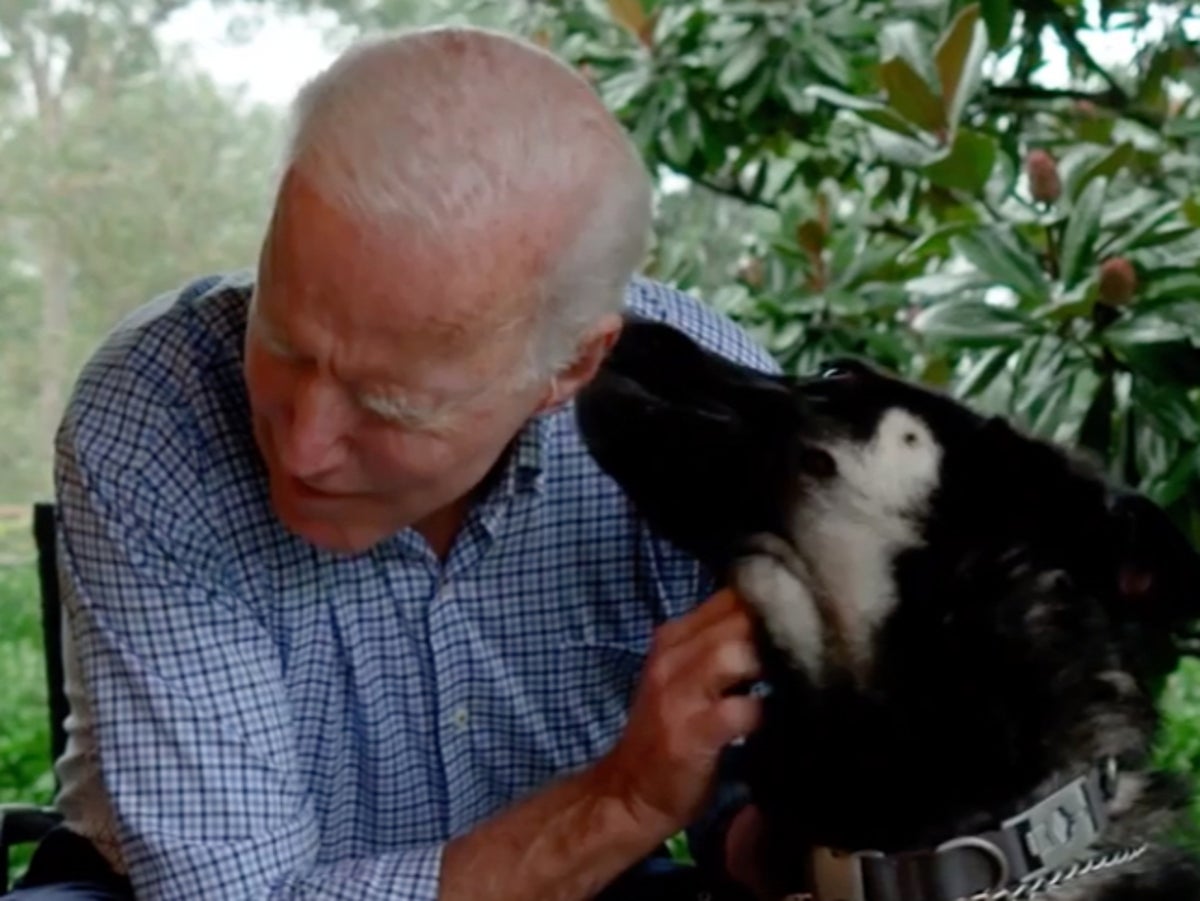Yesterday the world celebrated the election of Joe Biden, a new President Elect who promises to rebuild the United States on a blueprint based on “compassion, empathy and concern”. In this respect, he couldn’t be further removed from the current US president, Donald Trump. In Biden’s victory speech on Saturday, he pledged to address systemic racism, to tackle the COVID pandemic head-on and protect American healthcare, and he acknowledged the critical importance of mitigating climate change and rejoining the Paris Agreement. These were all reasons why I was personally rooting for Joe Biden and Kamala Harris, the first woman of colour to be elected as Vice-President of the United States: their victory meant tentative hope for the world, not just for the American people. What’s more, Biden’s triumph brings German shepherd Major into the White House, the first ever rescue dog to grace the presidential residence! Does that mean we can look forward to an America where human and non-human animal lives are valued?

It’s certainly not something we saw under Trump’s administration. In January 2019, the Preventing Animal Cruelty and Torture (PACT) Act seemed, at a cursory glance, to suggest some good work for animal welfare. Yet the PACT Act doesn’t apply to animal agriculture, where 99% of cruelty to animals in the US takes place. Nor does it cover animal testing, fishing or hunting. In short, the act was a flimsy smokescreen to distract from all the horrific things Trump was allowing to happen to animals under his governance. For instance:
- Reversing, rolling back or revoking more than 70 environmental rules and regulations, including significantly weakening the Endangered Species Act by making it easier to remove a species from the ‘endangered’ list or weaken protections for ‘threatened’ species. What’s more, regulators could base a species’ need for protection on economic assessments i.e., if monetary gain was to be had by destroying a species’ habitat, it could come off the endangered list.
- Denying climate change and pulling out of the Paris Climate Accord, threatening the lives of every human and non-human animal on this planet.
- Rolling back regulations for the Obama-era animal welfare rule that meant better treatment of ‘organic’ farmed animals (the rule allowed birds to engage in natural behaviours and – shocker – stretch their wings).
- Killing bears and their cubs in the Alaska wildlife refuge, as well as opening 1.5 million acres of the refuge to oil drilling.
- Treating breeders, zoos, circuses, horse shows and research labs as partners rather than as potential offenders, emphasising education rather than enforcement. This approach curtailed inspectors’ ability to document violations, putting millions of animals at risk. In 2019 only 19 enforcement cases were launched, a decline of 92% compared to 2016.
- Removing thousands of animal abuse records from the USDA website, making it harder for Americans to find out which puppy mills, research laboratories and zoos comply with animal protection laws: essentially protecting abusers.
- Lifting an Obama-era ban on the import of sport-hunted trophies from elephants.
- Sanctioning the use of lead ammunition for hunting wildlife in national parks, potentially killing up to 20 million animals in addition to those targeted by the hunters.
- Finalising a federal rule to remove slaughter speed limits at pig slaughter facilities (the consequences of which don’t bear thinking about).
- Proposing to remove ESA protections for gray wolves.
- Issuing three critically endangered black rhino trophy import permits in the last three years.
- Refusing to send chimpanzees held at a primate laboratory in New Mexico to retirement at the federal sanctuary Chimp Haven.

The list goes on and on. But if Trump’s USDA cut back on animal welfare enforcement and partnered with, rather than punished, perpetrators of animal cruelty, will things be any different under Biden?

A lot has been made of Biden’s adoption of shelter dog Major, who came from a litter of six puppies who had been exposed to toxins and hospitalized. However, his first dog, Champ, was actually bought from a commercial dog breeder in Pennsylvania and it was the backlash Biden received for this that made him promise to adopt a rescue next time. Why were people so disappointed about Biden’s purchase of Champ? Because of his past record of support for animal protection legislation. Taken from the Humane Society blog here, he:
- Voted to limit US funding of the international tuna fishing convention that allows the use of dolphin-deadly nets and co-authored the Truth in Tuna Labeling Act to amend to make the ‘dolphin safe’ certification stricter.
- Urged the Canadian government to end its commercial seal hunt.
- Authored the Captive Exotic Animal Protection Act to prohibit canned hunting: trophy hunting of captive exotic mammals in fenced enclosures.
- Voted to bar taxpayer funding used to administer or promote the use of two inhumane traps (steel-jaw leghold traps and neck snares) on National Wildlife Refuges.
- Recommended that the IWC oppose commercial whaling and the trade in whale meat.
- Voted (several times) for an amendment to the Farm Bill to stop horse slaughter and cosponsored for the American Horse Slaughter Prevention Act to bar transport, possession, purchase or sale of horses to be slaughtered for human consumption. As Vice President, Biden worked to include language in the federal budget that effectively ended the practice of horse slaughter for human consumption in the US.
- Cosponsored the Pet Safety and Protection Act to prohibit the use of stolen dogs and cats in research.
- Helped prevent interstate shipment of birds for fighting and enforce state cockfighting bans, as well as the export of fighting birds and dogs. Biden also sponsored the Animal Fighting Prohibition Enforcement Act which was eventually signed into law.
- Cosponsored the Downed Animal Protection Act to require humane euthanasia of farmed animals too sick or injured to stand or walk, and prohibit USDA certification of downer meat for human consumption.
- Voted for an amendment to the House Agricultural Appropriations Bill that eliminated a $2 million annual government subsidy to the mink industry (highly significant in light of the recent link between mink farming and COVID).
- Voted against an amendment to the California Desert Protection Act which would have opened the Arctic National Wildlife Refuge to oil and gas development, and voted for an amendment to prevent consideration of drilling in the Arctic National Wildlife Refuge. He also voted for an amendment to require resource management plans for military bases to effectively protect endangered species.
Critically, Biden’s declared policies to strengthen environmental protections, invest in clean energy, reduce greenhouse gas emissions and phase out fracking will all have an enormously positive impact on animal life in the long term.

The World Animal Protection Index (API), which ranks countries on their laws protecting animals, currently ranks the US below Mexico and India: America hasn’t increased its D ranking since 2014. Biden’s pro-animal welfare voting record certainly offers some hope that this might change under the new administration, rolling back and blocking the worst Trump-era policies. Of course, it’s important to acknowledge that any reforms Biden might make will take place within existing, deeply problematic power structures: he and Harris aren’t pushing for any real systemic change or – realistically – they would never have been elected. Just as the new presidency will reduce but not end fracking, retrain but not defund the police and reform ICE rather than abolish it, any improvements in animal welfare will take place within the context of a food system that prioritises economic gain over animal lives. But COVID has shown the world that animal exploitation has consequences for human lives too, and something has to change.
